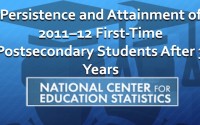
Emotional Intelligence as a Determinant of Readiness for Online Learning
Students’ performance and behavior in online learning environment is associated with their readiness to opt digital learning approach. We in this research investigated distance learners’ emotional intelligence as a determinant of their readiness for online learning. 432 learners enrolled in correspondence based distance learning programs participated in the study. Wong and Law emotional intelligence scale […]
















